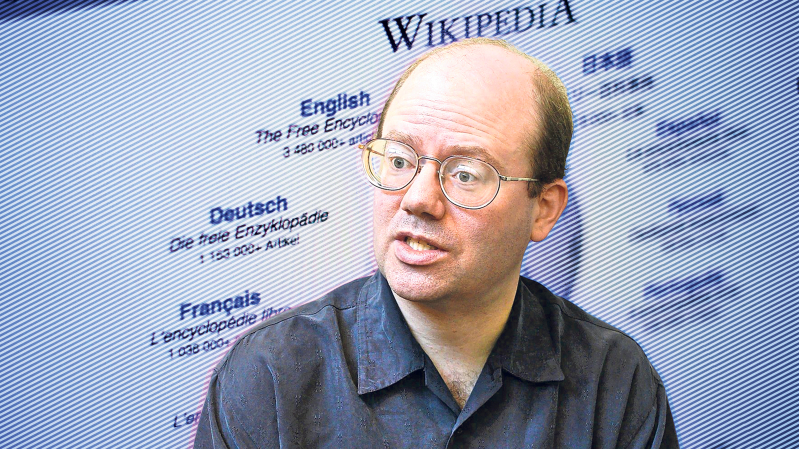
Larry Sanger, the co-founder of Wikipedia, has made headlines with his recent declaration of faith in Christianity. The tech visionary, who played a crucial role in developing one of the internet’s most influential knowledge platforms, revealed that his embrace of Christianity was the result of years of philosophical and spiritual exploration.
Sanger, who has long been known for his critical stance on the control and dissemination of online information, shared that his journey toward Christianity was driven by a deep intellectual curiosity and a search for objective truth. Once an agnostic, he found himself drawn to the historical and philosophical underpinnings of Christian belief, ultimately concluding that faith in Jesus Christ provided the answers he had been seeking.
In a series of interviews and writings, Sanger described his concerns with the modern landscape of digital knowledge, including bias and misinformation. He pointed out that in his quest for truth, he realized that secular frameworks often failed to provide an absolute moral foundation. Christianity, he said, offered a compelling and historically grounded structure for understanding reality and human purpose.
Reflecting on his past struggles with faith, Sanger recalled an experience from his teenage years that deeply impacted his belief. In his lengthy essay, he shared, "At some point in my late teens, I remember calling up a pastor—I forget which—to ask skeptical questions. It felt bold for a teenager to do, but I was not merely being rebellious. I really needed help thinking these things through. But the pastor had no clear or strong answers. He seemed to be brushing me off and even to treat me with contempt. It seemed to me he did not care, and if anything, I had the impression that he felt threatened by me. This was a surprise. The damage was quickly done: being met with hostile unconcern by a person I expected to be, well, pastoral confirmed me in my disbelief..."
Sanger further reflected, "In retrospect, I believe it hurt my belief very much to have been told that I should not ask so many questions. This is a terrible thing to say to a child because he will infer (as I did) that only dogmatic people, who lack curiosity and are unable to answer hard questions, believe in God. Therefore, such a belief must be irrational. That is what I thought. How wrong I was, and how long it took me to discover my mistake."
His announcement has ignited discussions across various communities, with some praising his intellectual openness and others questioning how his beliefs might influence his views on technology and knowledge. Nevertheless, Sanger remains committed to his faith and has expressed a desire to engage in thoughtful discourse about religion and truth.
Sanger’s shift from a secular knowledge advocate to a proponent of Christian faith highlights the enduring dialogue between reason and spirituality in an era dominated by digital information. His story serves as a reminder that even the architects of modern knowledge platforms continue to grapple with the fundamental questions of human existence.







